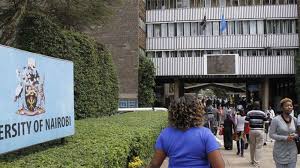The academic year in public universities is once again in crisis. The lecturers’ strike has entered its third week, leaving thousands of students stranded. Lecture halls remain empty, and most students spend their days idle in hostels or libraries.
Semester at Risk of Extension
This semester was meant to end in mid-December. However, with classes suspended since September 17, 2025, it is now likely to spill over into next year. The uncertainty has hit first-year students hardest. They had barely begun their studies when the strike began.
At the University of Nairobi (UoN), students say they are frustrated. “There is no learning going on. Our calendar year is not certain. We don’t know when we will finish the course and graduate,” said Mercy Oira, a Master’s student in Dentistry.
Impact Beyond Campuses
The strike has also affected patients who rely on supervised post-graduate trainees for treatment. “Since we work under supervision, our patients can no longer get the quality of treatment they need. Some of them are really struggling,” Oira added.
Why Lecturers Are on Strike
The Universities Academic Staff Union (UASU) accuses the government of failing to honor the 2017–2021 Collective Bargaining Agreement (CBA). Lecturers say Sh7.9 billion remains unpaid.
Although the government released Sh2.73 billion, UASU insists on a full settlement before new talks can begin for the 2025–2029 CBA. Last week, lecturers marched from UoN to Parliament, Treasury, and the Ministry of Education to present their petitions.
Students Threaten Protests
Students are also running out of patience. Leaders from different universities say staying on campus without classes is costly. Many are exhausting their Helb funds and personal resources. Some have threatened to protest if the government and lecturers fail to resolve the stalemate soon.
The Way Forward
UASU Secretary General Constantine Wesonga has called on the government to respect a court judgment and an advisory from the Attorney General issued in April 2025. The advisory directed the Ministry of Education to settle the Sh7.9 billion in arrears.
Until a deal is reached, the academic calendar remains in limbo. This uncertainty will delay graduations, attachments, and the smooth running of higher education across the country.

